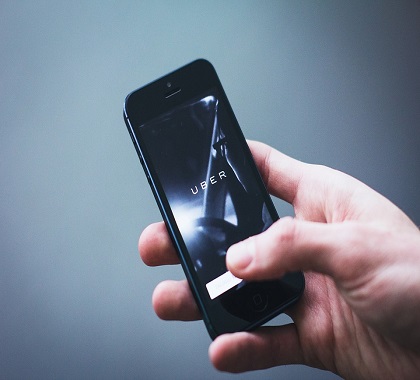An estimated 200 Uber and Lyft drivers demonstrated outside New York’s City Hall to voice their opposition to proposed ordinance that would impose new licensing fees and restrictions on peer-to-peer ridesharing services.
Members of the Independent Drivers’ Guild, an affiliate of the International Association of Machinists & Aerospace Workers union representing rideshare drivers, held a rally opposing an ordinance proposed by city Councilman Ruben Diaz Sr. (D-Bronx).
Diaz proposes imposing a $2,000 annual licensing fee on each driver and prohibiting drivers from using more than one app to connect with people seeking rides.
Many ridesharing drivers operate through more than one app, to increase the number of fares they can collect.
‘Micromanaging the Market’
Sean Mulholland, a professor of economics at Western Carolina University and a policy advisor for The Heartland Institute, which publishes Budget & Tax News says Diaz’s proposal would harm the people he represents.
“The big issue is that this package is trying to regulate growth, and it’s the city micromanaging the market while disempowering these workers, the same workers that these members of the City Council are representing,” Mulholland said.
Mulholland says increased economic growth in the city has been driving demand for ridesharing.
“New York City, in the last five years, has experienced more job growth than they had in the thirty years before then, while tourism in the city is up 20 percent,” Mulholland said. “These factors combined, on top of the fact that in 2010 a handful of bus routes were cut, inevitably leads to an increase in consumer demand for car services.”
‘Money Grab’
Doug Kellogg, state project director at Americans for Tax Reform, says the proposed ordinance will take money from rideshare drivers and their potential customers.
“This package makes things so much more difficult for the market as a whole, but overall, it is a big money grab from the drivers themselves,” Kellogg said. “This will affect consumer demand. It is going to become increasingly harder to quickly get a ride, as well as inflating costs. Ultimately, this regulatory package is meddling with the market.”





